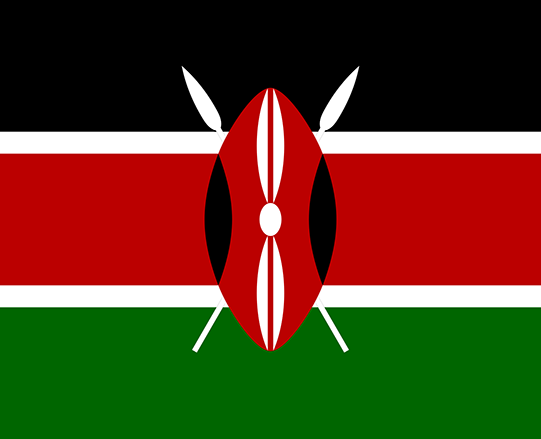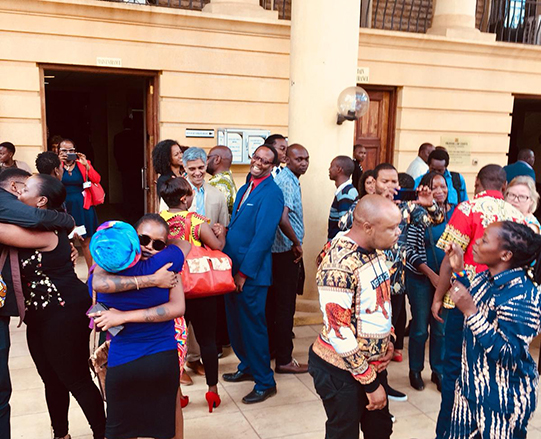Kenya’s High Court has heard a challenge against old colonial laws that target the lesbian, gay, bisexual and transgender (LGBT) community in Kenya this week. Rights group the Kenyan National Gay and Lesbian Rights Commission (NGLHRC) has argued that sections of the Kenyan Penal Code are in breach of the Constitution and deny basic rights to Kenyan citizens. The case, filed in 2016, seeks to strike down sections of the Kenyan Penal Code that criminalize consensual same sex relations between adults.
Eric Gitari, Executive Director of NGLHRC — and the main petitioner — states that sections of the Penal Code are used to justify violence against LGBT persons in Kenya. Mr. Gitari’s organization has recorded over 1,000 incidents of violations against LGBT people since 2014 — ranging from murder to mob violence, rape, blackmail and extortion.
“We receive cases of women who have been brutally beaten and raped because their family or neighbors found out they were lesbian. Or incidents where individuals go to the police seeking help only to have the police attack them. In one such case where our client tried to report a robbery, he was pushed into a cell by police officers, forcibly undressed, beaten, choked and had his hair shaved and burnt off because he ‘was dressed very gay.’ These are not the national values Kenyans aspire to.”
Mr. Gitari states that the law stands in stark contrast to the ideals of the Constitution of Kenya. Enshrined in 2010, the Constitution is one of the strongest on the continent on the rights and guarantees the freedom and dignity of all Kenyan citizens.
We have a constitution that carries the will of the Kenyan people and that says no one should be discriminated against, yet these laws do just that.
The disputed provisions were introduced by the British in 1897 and make vague reference to “carnal knowledge against the order of nature” and “gross indecency.” The Attorney General will argue that the law bans any sexual act that cannot produce offspring, as well as prohibiting sexual contact between men. Punishment for breaking these laws is up to fourteen years’ and five years’ imprisonment respectively.
“These laws far from being about morality are used to justify discrimination, violence, harassment and invasive intrusion of the private lives of Kenyan citizens,” Mr. Gitari states.
Represented by Senior Counsel Paul Muite, a renowned legal figure and fierce advocate for the respect of the Bill of Rights in Kenya, the NGLHRC will argue its case on Thursday at the Milimani Law Courts in Nairobi. If successful, the petition has the potential to change the tide for LGBT activists and rights group on the African continent as the East African country is seen a regional leader.
The case was heard alongside a similar petition brought forward by the Gay and Lesbian Coalition of Kenya (GALCK) and Nyanza Rift Valley and Western Kenya (NYARWEK) LGBT coalition seeking to have these provisions declared unconstitutional.


